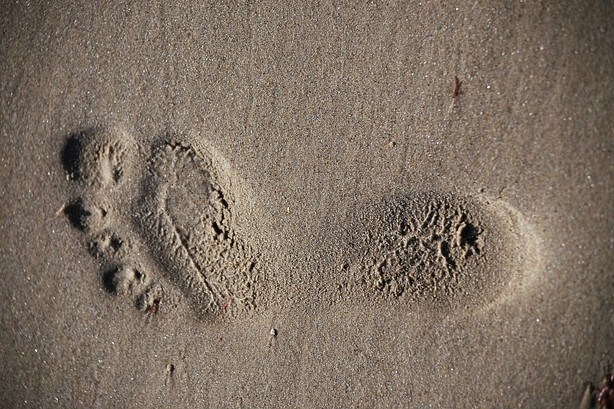The Slavery Footprint is is a survey created by Made In A Free World, designed to help consumers learn about how they may be unwittingly complicit in the perpetuation of forced labor based on the products they buy.
A user answers questions about their lifestyles, consumer history, and spending habits. These questions include the types of cosmetics you have in your bathroom, whether or not you own a car (or cars), the rooms in your home, eating habits, whether or not you have children, etc. The result answers the question: “How Many Slaves Work For You?” – the number may surprise you. Whilst the approach perpetuates an “us and them” understanding of modern slavery, which is far from empowering for victims of this crime, it helps users understand the scale by representing how much forced labor or child labor is used for the items they purchase and/or consume. It is estimated that over 40 million people are affected by slavery and another 85 million children under the age of 11 work in hazardous labor conditions.
The founder and CEO of Made In A Free World, Justin Dillon, developed the Slavery Footprint in partnership with the US State Department to respond to the need to show consumers how the items they purchase and their lifestyle are connected to modern slavery. To develop the software, hundreds of consumer products were studied, and estimates of the scale of modern slavery were translated to raw numbers and applied to each item’s production. Those who participate in the survey are given a number of people in slavery required in order to maintain their current lifestyle. The purpose of the tool is to raise awareness. The app gained a lot of traction, partially thanks to news outlets and coverage by the likes of CNN and the Washington Post. In 2012, during the 150th anniversary of Emancipation Proclamation, President Obama acknowledged Mr. Dillon’s accomplishments during his speech. The same year, the application won the Guardian Award for Digital Innovation in the category “Technology for Social Change”.
From the Made in a Free World Website:
We believe in using the free market to free people. At its core, the Slavery Footprint website allows consumers to visualize how their consumption habits are connected to modern-day slavery. Through our “Free World” mobile app and online action center, we provide consumers an outlet to voice their demand for things made without slave labor. We are collectively raising our voices so we can work with companies to manufacture our stuff “Made in a Free World.”
If you would like to try the survey, click on the link below.
http://slaveryfootprint.org/#where_do_you_live
Made in A Free World is currently campaigning in the area of Ghana’s Lake Volta, which is one of the largest artificial lakes in the world and an important source of the country’s fish stocks, with the aim to abolish child slave labor in that region. Lake Volta is associated with child labor trafficking as children, some aged five, work as many as 17 hours a day catching fish in the lake. Children have to dive deep to unhook heavy and tangled webs. Some of them never return to the surface. Others are exploited, kept alive with minimal food and often torturous treatment.
It is worth highlighting that 25% of all fish caught in Ghana is shipped to European markets. Charities including Challenging Heights are involved in rescuing children from the lake, providing transportation, the basics such as clothing, food, first aid, shelter and education with the aim of returning children to their families. You can read the short stories of rescued children, as they return to their childhood and are on their way to fulfilling their dreams of becoming future teachers, lawyers, drivers or doctors.
This is just one example of the global linkages made by modern slavery, which span the globe. Understanding a comprehensive picture of our connections to people living in modern slavery is very difficult indeed as supply chains are fragmented, rarely visible to consumers and we do not have accurate information on the true numbers of those experiencing modern slavery. The Slavery Footprint gives users an idea of potential connections and is helpful in indicating the breadth and scale of those connections around the world.







Freedom United is interested in hearing from our community and welcomes relevant, informed comments, advice, and insights that advance the conversation around our campaigns and advocacy. We value inclusivity and respect within our community. To be approved, your comments should be civil.
wow